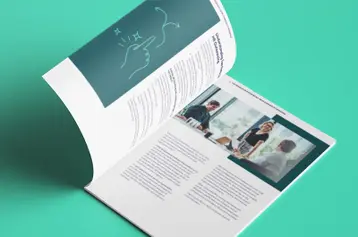Trends & Insights
Latest

HR Outsourcing
PEO HR Technology & HR Tools: What's Included
PEO HR technology can help SMBs with payroll tax support, self‑service tools, data analytics and much more.
December 26, 2025 ・9 mins read
Read more
HR Essentials
Your Complete Guide to HRO for Small Businesses
HRO for small businesses can improve your efficiency and overall operations. Are you missing out on 9 key benefits from HR outsourcing?
December 16, 2025 ・14 mins read
Read more
HR Outsourcing
HR Outsourcing Costs: The Complete Guide
This guide on HR outsourcing costs, pricing models and ROI will help you make informed decisions for your business needs.
December 15, 2025 ・12 mins read
Read more
HR Outsourcing
The PEO Client Employee Experience
December 24, 2025 ・6 mins read
Read more
HR Outsourcing
PEO vs. HR Consultant: Which Is the Ideal Investment?
December 23, 2025 ・9 mins read
Read more
HR Outsourcing
Navigating Global Workforce Challenges: H-1B Visa Changes and Impact on SMB Global Talent Strategy
December 22, 2025 ・5 mins read
Read more
HR Outsourcing
Recruitment Process Outsourcing: Should Your Business Consider It?
Discover how recruitment process outsourcing could elevate your talent acquisition efforts and provide cost-effective, efficient hiring solutions.
December 12, 2025 ・8 mins read
Read more

HR Outsourcing
PEO HR Technology & HR Tools: What's Included
PEO HR technology can help SMBs with payroll tax support, self‑service tools, data analytics and much more.
December 26, 2025 ・9 mins read
Read more
HR Outsourcing
The PEO Client Employee Experience
December 24, 2025 ・6 mins read
Read more
HR Outsourcing
PEO vs. HR Consultant: Which Is the Ideal Investment?
December 23, 2025 ・9 mins read
Read more
HR Outsourcing
Navigating Global Workforce Challenges: H-1B Visa Changes and Impact on SMB Global Talent Strategy
December 22, 2025 ・5 mins read
Read more
HR Essentials
Your Complete Guide to HRO for Small Businesses
HRO for small businesses can improve your efficiency and overall operations. Are you missing out on 9 key benefits from HR outsourcing?
December 16, 2025 ・14 mins read
Read more
HR Outsourcing
HR Outsourcing Costs: The Complete Guide
This guide on HR outsourcing costs, pricing models and ROI will help you make informed decisions for your business needs.
December 15, 2025 ・12 mins read
Read more
HR Outsourcing
Recruitment Process Outsourcing: Should Your Business Consider It?
Discover how recruitment process outsourcing could elevate your talent acquisition efforts and provide cost-effective, efficient hiring solutions.
December 12, 2025 ・8 mins read
Read more
Top Resources
E-GUIDE
The Benefits of Employee Benefits to SMBs
A innovative benefits offering helps attract and keep the talent you need to succeed. But do you know what benefits your employees want? Find out with our latest eGuide.
Get eGuide
E-GUIDE
6 Ways to Attract Top Talent
Bringing in the best and brightest employees can improve productivity, innovation, company culture and brand recognition, all of which contribute to your success. Get our six steps for becoming a ...
Get eGuide

E-GUIDE
Why TriNet: Discover the Power of HR Outsourcing for Business Success
A guide for business owners or HR leaders who are considering switching from in-house HR to outsourced.
Get eGuide
E-GUIDE
The Benefits of Employee Benefits to SMBs
A innovative benefits offering helps attract and keep the talent you need to succeed. But do you know what benefits your employees want? Find out with our latest eGuide.
Get eGuide
E-GUIDE
6 Ways to Attract Top Talent
Bringing in the best and brightest employees can improve productivity, innovation, company culture and brand recognition, all of which contribute to your success. Get our six steps for becoming a ...
Get eGuide
Learn how TriNet’s comprehensive HR solutions can help your business.
Fill out the form and we’ll contact you to set up a time to chat.


